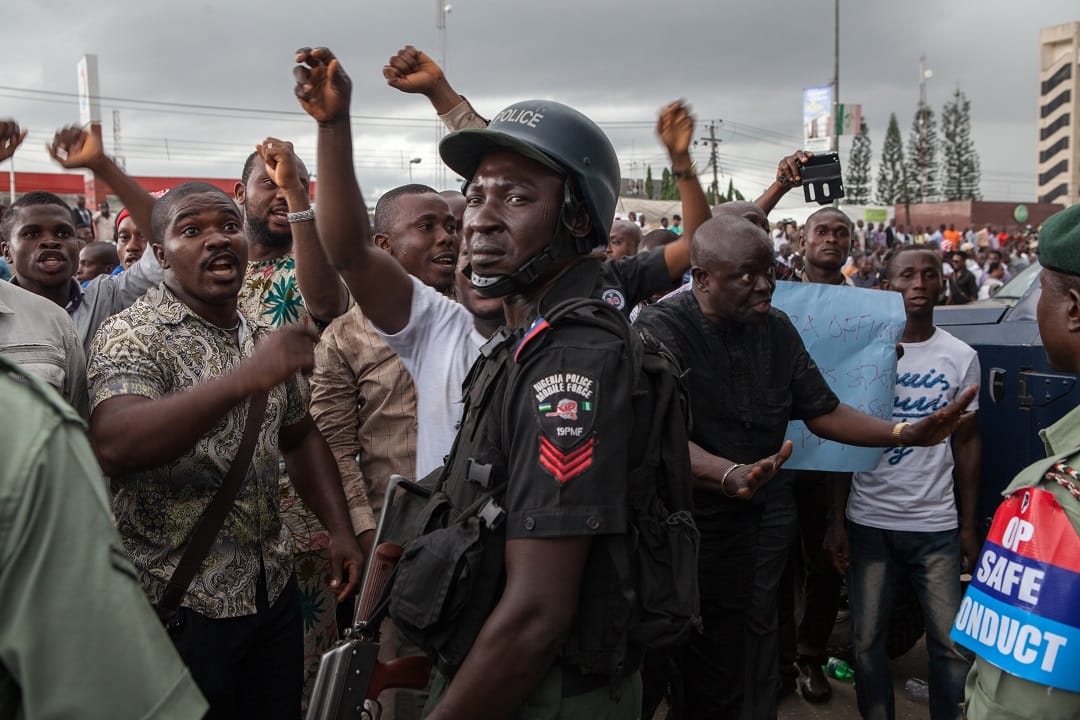In recent years, Nigeria has witnessed a disturbing rise in mob justice—an alarming phenomenon where individuals accused of crimes are subjected to extrajudicial killings by angry mobs. One of the most harrowing cases occurred in Uromi, Edo State, where 16 individuals suspected of being kidnappers were lynched and set ablaze by a mob. Such acts of vigilantism highlight the deep-rooted frustrations of citizens over Nigeria’s failing security and judicial systems. However, while the anger fueling these actions is understandable, the consequences of mob justice are dire, threatening the rule of law, human rights, and the stability of society.
Understanding the Surge in Mob Justice
Mob justice is not a new occurrence in Nigeria. However, the increasing frequency and brutality of these acts suggest a systemic failure in law enforcement and the judiciary. Many citizens feel abandoned by the very institutions meant to protect them, leading them to take justice into their own hands. The widespread perception that criminal suspects evade punishment due to corruption, delayed court processes, and poor policing has contributed significantly to the rise of mob violence.
In many communities, law enforcement agencies are either ineffective or absent, leaving people vulnerable to criminal elements. Reports of police officers demanding bribes before investigating crimes or the judiciary failing to prosecute offenders have further eroded trust in the system. As a result, communities feel they must protect themselves, often resorting to violent and unlawful means.
The Dangers and Consequences of Mob Justice
While mob justice may seem like an immediate solution to crime, it carries severe and irreversible consequences. One of the most significant dangers is the risk of wrongful executions. Without a fair trial, innocent individuals can be falsely accused and brutally killed based on mere suspicion, rumors, or even personal vendettas. In several cases, those lynched have later been proven to have had no connection to the alleged crimes.
Moreover, mob justice fosters a culture of violence and lawlessness. Once the precedent is set that people can act as judge, jury, and executioner, the likelihood of indiscriminate killings increases. This can spiral into widespread chaos, where individuals and groups use mob justice as a tool to settle personal scores or eliminate perceived enemies. Over time, such violence weakens the fabric of society, making it difficult to maintain peace and order.
The psychological and social damage caused by mob violence is another concern. The sight of public lynchings instills fear in communities and traumatizes those who witness such acts. Children growing up in environments where brutal killings are normalized may develop a skewed perception of justice, believing that violence is an acceptable means of conflict resolution.
Furthermore, the rise of mob justice undermines efforts to build a strong and functional legal system. A society governed by the rule of law ensures that justice is administered fairly, with due process followed. When mobs take over the role of law enforcement, the legal system is further weakened, making it even harder to restore public trust in state institutions.
The Role of Government and Society in Addressing Mob Justice
To curb the increasing trend of mob justice, both the government and civil society must take urgent action to restore public confidence in the legal system. Strengthening the judiciary is a critical first step. Court proceedings in Nigeria are notoriously slow, with cases dragging on for years. Reforms that ensure quicker, more transparent, and corruption-free trials will help rebuild faith in the system. If citizens believe that justice will be served efficiently, they will be less likely to resort to mob violence.
Law enforcement agencies must also undergo significant reforms. Police officers should be adequately trained, equipped, and held accountable for their actions. A restructured police force that actively engages with communities and responds promptly to security threats can help bridge the trust gap between law enforcement and the public. The government should also invest in community policing initiatives that involve local leaders in maintaining security and preventing crime.
Public awareness campaigns are essential in addressing the root causes of mob justice. Many people participate in lynchings out of ignorance or collective hysteria. By educating citizens on the dangers and legal implications of mob justice, attitudes toward this form of violence can gradually change. Schools, religious organizations, and the media can play a crucial role in spreading awareness and promoting peaceful dispute resolution methods.
In addition, there must be strict legal consequences for those who engage in or incite mob justice. Without accountability, such acts will continue unchecked. The government should ensure that individuals who take part in mob killings are arrested and prosecuted to serve as a deterrent to others. At the same time, legal protection should be provided to those who report crimes through appropriate channels, ensuring that they do not feel compelled to resort to unlawful means.
Ultimately, addressing mob justice requires a multi-faceted approach that strengthens institutions, restores trust in the justice system, and promotes a culture of lawfulness. If Nigeria fails to tackle this growing problem, it risks further descent into lawlessness, where violence becomes the norm and the sanctity of human life is disregarded.




